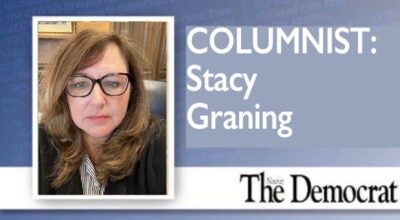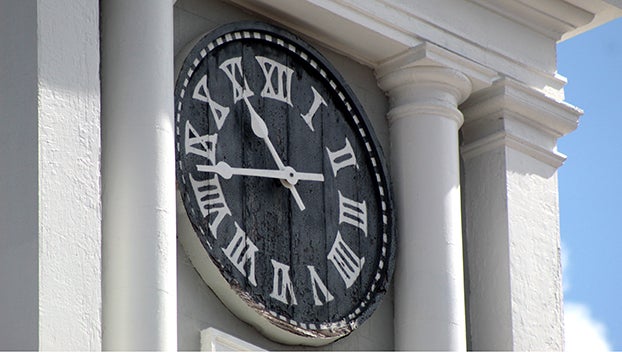More lessons from Weimar, part 7
Published 12:16 am Sunday, September 3, 2017
Now with some grasp of the nature of Nazism, we need to understand something of Hitler himself. Ian Kershaw, his preeminent biographer, portrays him as a man with good political instincts but with only “half-baked knowledge.” A man whose “arrogance was breathtaking,” but one who was “incapable of systematic work,…unordered, indisciplined, and indolent.” These traits blended seamlessly, though, when he was “performing” before a cheering crowd. Hitler, says Kershaw, “was above all a consummate actor.” But one who performed only in one-man shows, and those scripted by only one man, himself.
His frenzied political style was described in a 1944 intelligence report commissioned by the American OSS (the predecessor of the CIA), “His primary rules were: never allow the public to cool off; never admit a fault or wrong; blame [your enemy] for everything that goes wrong.” And another of his rules cited in the OSS analysis – when it came to lying, go big, go often, or go home. Few things characterized Hitler like the Big Lie.
The classic statement of the Big Lie is actually from Hitler’s Mein Kampf (My Struggle), published in 1925. While deceitfully claiming the technique was of Jewish origin, he was in fact explaining his own method. Due to “the primitive simplicity” of most peoples’ minds, he said, “the broad masses of the nation more readily fall victims to the big lie than the small lie, since they themselves often tell small lies in little matters but would be ashamed to resort to large-scale falsehoods. It would never come into their heads to fabricate colossal untruths, and they would not believe that others could have the impudence to distort the truth so infamously.” And so, the more shameless the lie, the more truthful it appeared.
As an adjunct to his own lying, Hitler of course demonized the press which dared to look for the truth. Its members were not only dishonest “scoundrels” and morally disgusting “scum,” they were dangerous “vipers” as well. Given these judgments, it went without saying that he would destroy press freedom once in office. Nevertheless, he said, their fact-checking was irrelevant, since “despite a thousand refutations something [of the Lie] always sticks,” particularly through its “hundredfold repetition.” In the end, the bravura “act” of the Big Liar will overwhelm journalists’ indisputable but tiresome facts. In extracting golden belief from leaden deceit, it was a feat of political alchemy to put Merlin the Magician to shame.
Hitler did not simply lie, however. He cultivated the lies planted by others. In the fevered years after the Great War ended, too many Germans compounded their problems by swallowing a heavy dose of self-deception. A sizeable segment of the population convinced themselves that Germany’s armies hadn’t lost the war on the battlefield but had been betrayed by Weimar politicians – which is nonsense. That, post-war reparation payments were unbearably high – though scholars agree, they weren’t. And too, that communist revolution was looming – though scholars agree, it wasn’t. Hitler didn’t create this environment of paranoia, resentment and fear. He would, though, ruthlessly exploit it. Deceit would breed deceit.
How do republics die? This is how. An open contempt for “the reality-based community” spawns evidence-free “alternative facts” which grow up to be Big Lies. Elemental dishonesty is normalized. Objective truth is discredited. Where the public takes leave from reality, there can be only maniacal shouting. Where debate disintegrates into bedlam, there can be no democracy. At which time, all must defer to the Peerless Leader – by default, the loudest and most relentless of the braying asses.
Next time, who voted for the Nazis, and why?
Jim Wiggins is a retired history instructor from Copiah-Lincoln Community College in Natchez.






